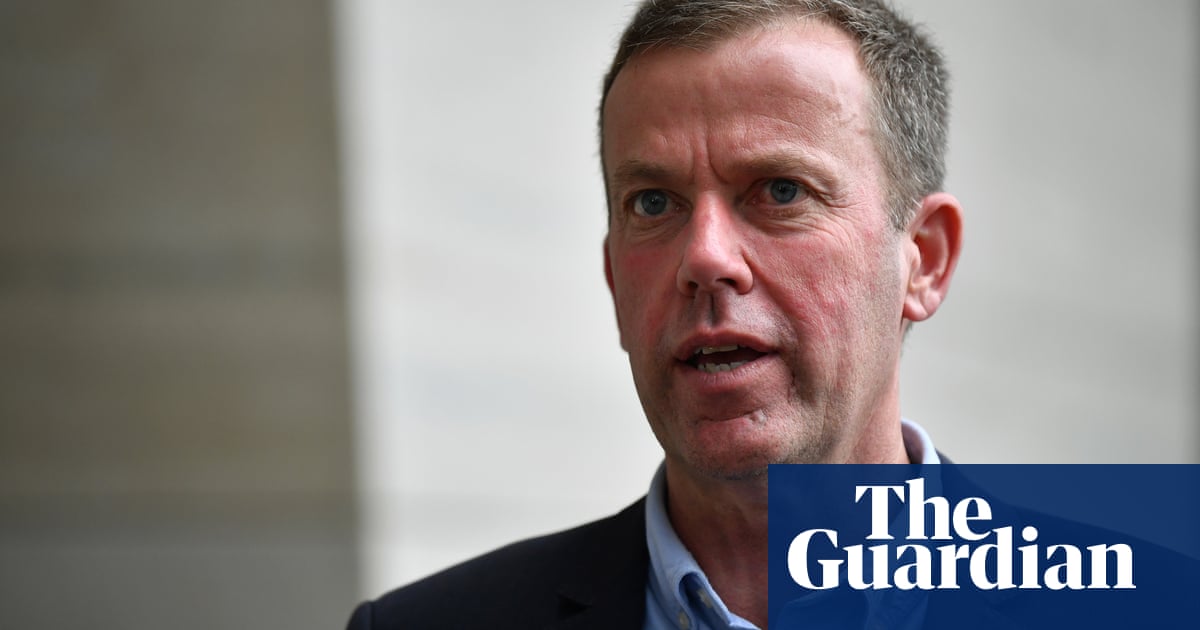
The Australian government says it wants to help Taiwan decarbonise its economy, flagging this as the next area of cooperation with the democratically ruled island, amid ongoing tensions with China.
The trade minister, Dan Tehan, said he saw “real opportunities” to deepen energy ties with Taiwan, while arguing there was bipartisan recognition in Australia of “the greater assertiveness that we’re seeing from China”.
Tehan also confirmed he had been aware of the former prime minister Tony Abbott’s plan to travel to Taiwan prior to his departure, but reiterated that “all the comments he made over there were very much as a private citizen”.
China’s foreign ministry lodged a formal protest with Australia over what it called the “extremely absurd” and “selfish” remarks by Abbott, who had warned that Beijing might “disastrously lash out” and that the US and Australia could not stand idly by.
Taiwan has signalled its interest in pursuing a bilateral trade deal with Australia, in addition to its push to join a key regional trade pact, with its representative in Canberra presenting it as a “trustworthy partner for Australia”.
In an interview with Guardian Australia this week, Tehan did not rule out a bilateral agreement with Taiwan, but suggested Australia already had “a lot” on its plate when it came to trade negotiations, including finalising the UK and the EU deals.
“We already have a very strong economic partnership with Taiwan and the area that we see next that we would want to progress is around the energy partnership and seeing what we can do in particular to help as Taiwan looks to decarbonise over time,” Tehan said.
“We see real opportunities when it comes to LNG, when it comes to liquid hydrogen, and when it comes to renewables technology, and that’s the area that we’re focused on at the moment.”
Taiwan has outlined plans to generate 20% of its energy from renewable sources by 2025, up from 5% in 2020, including a significant focus on offshore wind power.
The Australian government – which has been resisting calls to strengthen its 2030 emissions reduction target and is yet to reach a deal for a mid-century net zero target – has instead declared a focus on “technology”.
It has already signed deals with partners including Germany and Japan to cooperate on low-emission technology and hydrogen. Local media in Taiwan said the Australian office in Taipei had recently hosted a hydrogen trade and investment event.
Under Australia’s one-China policy, it does not recognise Taiwan as a country in the international system but pursues cooperation with the island in areas such as trade, culture and education.
Both China and Taiwan have said they want to join the Comprehensive and Progressive Agreement for Trans-Pacific Partnership (CPTPP), which currently has 11 members including Australia, New Zealand, Japan and Singapore.
Tehan said entry into the CPTPP would depend on the “ability to meet the gold standard rules”.
“Whether it’s China, Taiwan or any other economies slash countries that want to accede, ultimately will be up to the membership and you need consensus amongst all the members as to who will accede and who won’t,” he said.
This week, Australian officials at the World Trade Organization accused Beijing of rolling out politically motivated trade actions against “a wide range of Australian products” over the past 18 months, including barley, coal, cotton and wine.
The Australian government said Beijing’s actions had “increasingly tested global trade rules and norms” and increased the risk of doing business with China.
The @WTO Trade Policy Review process is an important way of shedding light on Members’ policies and practices.
Read Australia’s Statement on China’s Trade Policy Review today 👇🏼 pic.twitter.com/9CqtNvv7cA— George Mina (@AusWTO) October 20, 2021
Asked whether he believed the relationship with Australia’s top trading partner had moved into a permanently adversarial phase, Tehan said: “Look, I hope not.”
He argued people in Australia and China had benefited from trade and “there’s a lot that we should be able to work in common on”.
Tehan said he still had not heard back from his Chinese counterpart, nine months after writing to the commerce minister, Wang Wentao, requesting dialogue. “We know that the letter was delivered,” he said.
“We’re now patiently waiting to see whether we’ll get a response.”
In an implicit message against politicising national security and foreign affairs before Australia’s looming federal election, Tehan said: “The more that we can make sure that we’re united politically in how we tackle these current strategic issues, I think the better it is for us as a nation.”
The tensions with China have sparked renewed calls for Australia to diversify its trading relationships.
Tehan – who visited New Delhi in late September on his way to Europe – said Australia and India were planning for an “early harvest” trade deal by the end of this year, laying the foundations for a more comprehensive agreement by the end of 2022.
He acknowledged Australia’s push for access for agricultural exports to India presented “obvious sensitivities” so Canberra needed to make sure “that our expectations are reasonable”.


